Center for the Advancement of Multicultural Perspectives on Social Sciences, Arts, and Humanities (CAMPSSAH) Scholars
2024-2025
José Manuel Santillana Blanco
Assistant Professor, American Studies
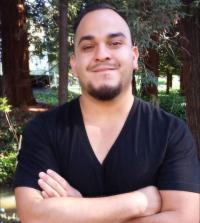
José Manuel Santillana Blanco is an activist, scholar and storyteller. As the son of Mexican immigrant parents, José Manuel was politicized within the rural migrant farmworker landscapes of central California. He received the 2022-2024 University of California President’s and Andrew W. Mellon Foundation Postdoctoral Fellowship in the Department of American Studies at UC Davis. Drawing on the work of Black, Latinx and Indigenous decolonial thinkers, his work explores the ways Black, Immigrant and Indigenous women-led community struggles across the United States have been foundational to our understanding of racialized social life, ecological violence and resistance across entangled geographies. His work titled Racial Motherhood Ecologies examines the intricate role local environmental histories play in shaping ecologies across varying geographies, especially in relation to the ways in which motherhood becomes salient as a mobilizing force to address and disrupt structural violence in their communities. José Manuel’s work has been published in Aztlán: A Journal for Chicano Studies, University of Washington Press, University of Nebraska Press and Routledge. He is the recipient of the Ford Foundation Dissertation Fellowship, Interdisciplinary Dissertation Fellowship at the Interdisciplinary Center for the Study of Global Change, and University of Minnesota Doctoral Dissertation Fellowship.
Learn more at his website, https://www.jmsantillanablanco.com/.
Natalia Duong
Assistant Professor, Asian American Studies; Science & Technology Studies
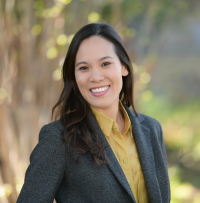
Natalia Duong’s research weaves performance studies, transnational Asian American studies, disability studies, and studies of the environment. Her current book project, Chemical Diasporas, examines the spread of the herbicide Agent Orange through a study of cultural media, disability law, and community-engaged research in Vietnam. Her research has been published in the Canadian Review of American Studies, the Journal of Dramatic Theory and Criticism, Dance Research, Catalyst: feminism, theory, technoscience, and in the edited anthology Crip Genealogies (Duke University Press). In addition to her scholarly writing, Dr. Duong makes performances as a dramaturg, director, and choreographer focusing in particular on new plays written by and about folks in the Asian diaspora. She received a Ph.D. in Performance Studies with a Designated Emphasis in Women, Gender, and Sexuality from the University of California, Berkeley. Prior to joining UC Davis, she taught at UC Berkeley and Pomona College and was a UC President’s Postdoctoral Fellow in English at UCLA.
Bianca Hand
Assistant Professor, Classics
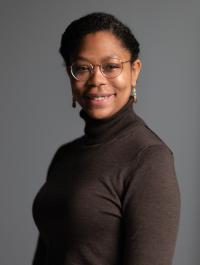
At its core, Bianca Hand’s research stems from a fascination with the interconnected nature of the ancient world. She focuses broadly on how this interconnectivity affects artistic production through the lens of alterity, style, and materiality in the art and architecture of ancient western Asia and the Eastern Mediterranean region. Her current research project reconsiders the role of visual alterity in the reliefs and architecture of palaces built during the Neo-Assyrian empire in present-day northern Iraq. Her other research projects explore the 19th and 20th-century reception of ancient western Asian art and the application of post-colonial theory to questions pertaining to the ancient world, such as the affect of depicted violence against both humans and foreign landscapes depicted in Neo-Assyrian palatial relief programs. She earned her Ph.D. in History of Art at Johns Hopkins University in 2024 after having received the 24 month Ittleson Fellowship at the Center for Advanced Study in the Visual Arts at the National Gallery of Art in Washington, DC and a History of Art and Visual Culture Fellowship with the Department of Ancient Near Eastern Art at the Metropolitan Museum of Art in New York City.
Cj Jackson
Assistant Professor, Native American Studies

Cj Jackson is a Diné writer and scholar from the Navajo Nation in Arizona. Their research involves reading the work of Native poets as sites for theorizing relational ethics and for reclaiming Indigenous forms of intimacy. Their current book project works at the intersection of Native and Indigenous Studies, theories of gender and sexuality, environmental studies, and affect to challenge the cultural dispossession of queer Indigenous bodies. They received their PhD in English from the University of California, Riverside.
Antoine Johnson
Assistant Professor, African American and African Studies
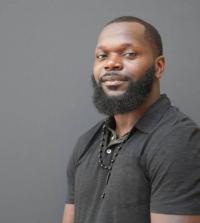
Antoine S. Johnson, Ph.D. was born and raised in East Oakland, California. After graduating from Castlemont High School, he attended California State University, Sacramento where he earned his BA and MA in American History. His master's thesis examined rap music during hip hop's "golden era," from roughly 1987 to 1993, and how rappers utilized their platforms to raise awareness on issues in poor and working-class Black communities, situating themselves within the Black intellectual tradition. Interest in how Black people confronted the crack and AIDS epidemic led to him attending the University of California, San Francisco, where he earned his Ph.D. in the History of Health Sciences. Johnson's dissertation explores Black HIV/AIDS activism in the Bay Area, and he is currently working on the book manuscript for this project. In 2023, he received the Jack D. Pressman-Burroughs Wellcome Fund Career Development Award from the American Association for the History of Medicine.
2023-2024
Alan Pelaez Lopez
Assistant Professor, Chicana/o Studies

Pelaez Lopez is a transdisciplinary artist and an assistant professor of Chicanx/e Studies whose research is invested in the radical Black Indigenous imagination, undocumented migration, and trans* studies. They are the author of Intergalactic Travels: poems from a fugitive alien (The Operating System, 2020), a finalist for the International Latino Book Award, to love and mourn in the age of displacement (Nomadic Press, 2020), and editor of When Language Broke Open: An Anthology of Queer and Trans Black Writers of Latin American Descent (University of Arizona Press, 2023). Dr. Pelaez Lopez's writing and political commentary appear in Women's Studies Quarterly, The Architectural Review, The Nation, Teen Vogue, Refinery29, Best American Experimental Writing, the Georgia Review, and others. Their visual art has been exhibited in museums and galleries in the United States and Europe.
Akshita Sivakumar
Assistant Professor, Design

Sivakumar is a designer and social scientist. Her work focuses on technoscience at the confluence of environmental governance and social movements to analyze the socio-spatial production of difference in justice-oriented efforts involving the state, market, and civil society. She combines ethnographic, ethnomethodological, and critical-making methods to analyze the politics of representation, knowledge production, labor, and solidarities. Her current research and book project examines how computational technologies mediating environmental governance and environmental justice produce material and discursive differences and how social movement actors align with and contest these processes and outcomes.
She received her Ph.D. in Communication and Science Studies at UC San Diego, completing her dissertation “Model Governance, Model Justice: Social Infrastructures in Urban Environments.” This work was supported by a National Science Foundation (NSF) Doctoral Dissertation Improvement Grant (DDRIG). She trained in architecture at Washington University in St. Louis and Massachusetts Institute of Technology.
She maintains a creative practice under the moniker of moredustings and will lead a lab at UC Davis called the Collective for Socio-spatial and Environmental Praxis (CSEP).
Katlin Marisol Sweeney-Romero
Assistant Professor, Cinema and Digital Media

Sweeney-Romero (she/her) is an Assistant Professor of Cinema and Digital Media at UC Davis. She received her PhD in English with a specialization in Film Studies from The Ohio State University in 2023. Her dissertation, Social Mediated Latinas: Creating and Contouring Digital Latina Looks in the Twenty-First Century, examines how Latinas utilize their social media presence to act as both cultural producers of original content and participants in intracultural discourse related to ethnoracial identity.
Katlin has published chapters in edited collections such as TikTok Cultures in the United States (Routledge, 2022), Latinx TV in the Twenty-First Century (U of Arizona P, 2022), Cultural Studies in the Digital Age (SDSU Press, 2021), and The Routledge Companion to Gender and Sexuality in Comic Book Studies (Routledge, 2020). In 2020, she co-edited a special issue of Prose Studies (vol. 41, no. 2) on Latinx nonfiction with Frederick Luis Aldama.
She presently serves as the Co-Coordinator of Programming and Marketing for The Latinx Comic Arts Festival at Modesto Junior College, the Social Media/Web Head for the Graduate Student Caucus of the Comics Studies Society, and on the editorial board of Amatl Comix at San Diego State University Press.
Akua A. Banful
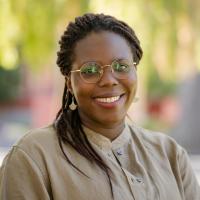
Assistant Professor, English
Banful’s comparative and interdisciplinary research bridges her scholarly, historical interests in and approaches to the study of climate with the contemporary conversations surrounding climate crisis and catastrophe via the literary and visual arts that reflects her commitments to the public humanities and social and environmental justice. Her specializations include African diasporic and postcolonial literary studies, comparative literature, and the environmental humanities. Her dissertation, “The Hostile Tropics: Towards a Postcolonial Discourse of Climate,” argued that ‘climate’ is both an ecological and cultural reality whose meanings were shaped by European imperialisms. She received her Ph.D. in English and Comparative Literature from Columbia University and comes to U.C. Davis following a Pre-Doctoral Fellowship in Climate and Inequality at the Climate Museum in New York City.
Christoph Hanssmann

Assistant Professor, Gender, Sexuality, and Women's Studies
Prior to joining U.C. Davis, Hanssmann was an Assistant Professor of Women and Gender Studies at San Francisco State University. Hanssmann’s interdisciplinary research spans feminist and trans studies; science and technology, studies; and social sciences of health and medicine. His work centers on how relationships between biomedicine and social movements shape the politics of health and science. He works with researchers and activists in feminist, queer, and transfeminist health and justice, and recently completed a manuscript about the transnational emergence of transgender health as an institutionalizing field and public good. In it, he chronicles how certain strands of trans health activism in the U.S. and Argentina have confronted not only regimes of pathologization, but also austerity politics more broadly.
Hanssmann has a PhD in Sociology from UCSF and an MPH from the University of Washington. He has published individually and collectively in Transgender Studies Quarterly, Medical Anthropology Quarterly, Feminist Formations, and Social Science and Medicine. Chris is part of the Feminist Health Justice Collective, the Star Fem Co*Lab, and the Just Research? collaborative.
Veronica Lerma
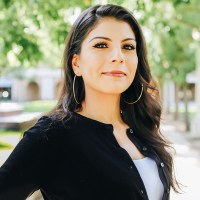
Assistant Professor, Sociology
Lerma joins the sociology department as an assistant professor of Crime, Law, and Society. She received her Ph.D. from UC Merced in 2022. Her dissertation, “Intersectional Criminalization en el Valle: The Criminalization of Formerly Incarcerated and System-Impacted Chicanas in California’s Prison Alley,” examines the intersections of race, gender, sexuality, and geographic location on criminalization processes and experiences. Drawing on life-history interviews with formerly incarcerated and system-impacted Mexican American women, she identifies the mechanisms of punishment that differentiate Chicana experiences of criminalization from those of their Chicano male counterparts and argues that criminalization is an intersectional process and experience that is reflected in everyday interactions, reproduced in social institutions, and embodied in larger systems of white supremacy and hetero-patriarchy. She has published in leading journals of her field including Social Problems and Sociology of Race and Ethnicity and is the co-author on a book chapter entitled, “Student Labor and Centers of Support” in Broke: The Racial Consequences of Underfunding Public Universities.
Ariel Mosley

Assistant Professor, Psychology
Mosley is an Assistant Professor of Racial Inequality in the Psychology Department at UC Davis. Her research focuses on how group members navigate their social identities and their worlds, and relate to other groups. She studies how people think about, respond to, and engage in acts of cultural appropriation, or acts of out-group cultural use. In 2020, she received her doctoral degree at the University of Kansas as a member of Monica Biernat's Stereotyping and Judgement Lab. Her dissertation examined the factors that lead to different perceptions of cultural appropriation among racially dominant and subordinated groups. She conducted her postdoctoral research career at Columbia University in the Columbia Social and Moral Cognition Lab working with Dr. Larisa Heiphetz. Her work with Dr. Heiphetz investigates how children and adults from different background perceive and experience religious curiosity. Over the next several years, her aim is to conduct basic and applied research that promotes social equality, improves intergroup relations, and cultural understanding. She plans to expand her work on cultural appropriation, social identity, and intersectionality, to further investigate how these psychological processes can facilitate ways to reduce intergroup biases and oppression.
Alicia Rusoja
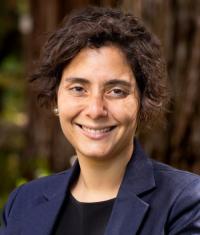
Assistant Professor, School of Education
Rusoja’s interdisciplinary research lies at the intersection of Latinx/Chicanx studies, critical education/critical literacy studies, and university-community/research-practice partnerships. As a Latina immigrant and activist-scholar, she employs participatory and critical community-based qualitative research methodologies to understand the immigrant rights organizing of Latinx immigrant youth, adults and families.
Broadly, her research illuminates the fundamental role that communal education, critical literacy, and critical research practice play in the intersectional, and intergenerational, political mobilization of Latinx immigrant youth and their communities. Relatedly, her work aims to explore how critical qualitative research methodologies, including community-based, participatory and practitioner research, can be tools for resisting colonial logics within the grassroots organizing of Latinx immigrant communities, as well as in community-based research and university-community partnerships, including those related to school-community relationships.
Rusoja received her Ph.D. in Reading/Writing/Literacy from the University of Pennsylvania's Graduate School of Education (PennGSE), and her B.A. in Latin American Studies and International Relations from Brown University. Her scholarly work has been published in Research in the Teaching of English, AERA Open, the Association of Mexican American Educators Journal,and in Literacy Research: Theory, Method and Practice, among others. She is a member of the Literacy Futurisms Collective-in-the-Making.
2021-2022
Zinzi Clemmons
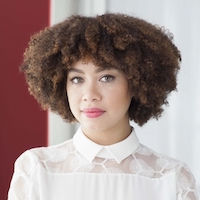
Associate Professor, English
Zinzi Clemmons joined the English Department in 2020 as Visiting Professor and in 2021 as Assistant Professor. Her debut novel, What We Lose (Viking 2017), was named “Debut Novel of the Year” by Vogue, and received praise from the Atlantic, the Guardian, the New York Times, The New Yorker, and others. What We Lose was a finalist for the Aspen Words Literary Prize, the California Book Award, a Hurston/Wright Legacy Award, and the National Book Critics Circle Leonard Prize. It was longlisted for the Andrew Carnegie Medal for Excellence in Fiction, Brooklyn Public Library Literary Prize, and the International Dublin Literary Award. She is a 2017 National Book Award 5 Under 35 Honoree. She wrote the foreword to a new edition of Jean Toomer’s Cane, published by Penguin Classics in 2019. You can read an interview of Clemmons as she reflects on her work and how it’s changed over a year of strangeness and surprise.
Shingirai Taodzera
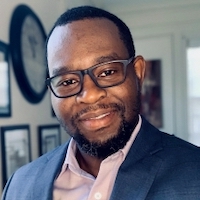
Assistant Professor, African American and African Studies
Shingirai’s scholarship focuses on the political economy of development in east and southern Africa, particularly the governance of high value extractive natural resources such as oil and minerals. He received a PhD in International Development from the University of Ottawa, and is working on turning his dissertation, entitled, “Nations within a state and the emerging hydrocarbons industry in Uganda” into his first monograph. This project examines the themes of indigeneity and natural resource ownership, post-colonial state formation and political competition, and the global matrix of resource extraction and dispossession.
Ariana Valle
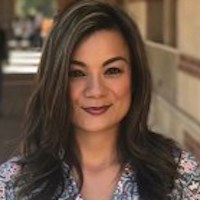
Assistant Professor, Sociology
Valle is a scholar of race and ethnicity, migration, and political sociology focusing on the experiences of Latina/os in the United States. Her current book project, I Am Not Your Immigrant: Puerto Ricans, Liminal Citizenship, and Politics in Florida, draws on 112 in-depth interviews with Puerto Ricans and 12 months of participant observation in Orlando, Florida to analyze and theorize contemporary Puerto Rican migration and incorporation, intra-Puerto Rican and inter-Latino relations, and the institution of U.S. citizenship.
2020-2021
Kathleen Cruz
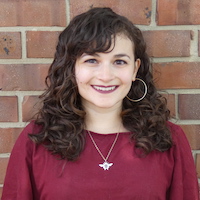
Assistant Professor, Classics
Cruz received her PhD in Classics from Princeton University. Her primary research focuses on the evocation of horror through bodily violence in Latin literary texts of the first century CE. Her project centers on interdisciplinary work that brings together findings from the philosophy of aesthetics as well as film and media theory. Her secondary research explores the reception of the classical tradition in two contexts: Medieval Scandinavia and the Hispanic Caribbean and Latin America. Current articles in progress in these areas examine how prominent political and literary figures demonstrated mastery over the Greco-Roman past for the implicit purpose of rejecting it in favor of their own native traditions.
In fall 2018, Cruz co-founded the working group “Antiquity in the Americas” with two colleagues from Princeton. Among its many goals, the group promotes connections between scholars of the ancient world in universities in the United States and those in Latin America and the Caribbean. In addition, and as part of this work, “Antiquity in the Americas” emphasizes the need to diversify where classicists in the United States imagine work on the ancient world is being done and by whom, and it also aims to promote the scholarship of Latinx students and early career scholars in the field through its events.
When not working on research or teaching, Kathleen can usually be found baking or watching musicals (sometimes simultaneously).
Beenash Jafri
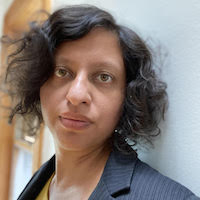
Associate Professor, Gender, Sexuality, and Women’s Studies
Jafri's work interrogates the fraught intersections of race, Indigeneity, settler colonialism, and sexuality through film and cultural criticism. Her current book project engages relational frameworks to investigate the seemingly contradictory investments of Asian diasporas in settler colonialism. She theorizes this contradiction not as evidence of a mere failure to heed the calls of Indigenous resurgence, but as exemplary of diasporic attachments to the settler colonial. The project turns to film as an integral site for the cultivation of these attachments, as well as their disruption. Across a range of sites including diasporic westerns and queer experimental film, she shows how diasporic longings frequently reestablish the centrality of settler colonialism, while diasporic out-of-placeness simultaneously provides possibilities for imagining otherwise.
Jafri holds a PhD in Gender, Feminist and Women’s Studies from York University (Toronto) and was most recently an assistant professor of cinema at Concordia University, Montreal. Her writing has been published or is forthcoming in venues such as GLQ: A Journal of Lesbian and Gay Studies, Settler Colonial Studies, American Indian Culture and Research Journal, Cultural Studies Critical Methodologies, and Lateral: Journal of the Cultural Studies Association. She has been on the board of the Critical Ethnic Studies Association since 2016, and is the book reviews co-editor for Lateral.
Michael V. Singh
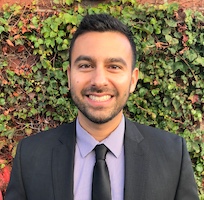
Assistant Professor, Chicana/o Studies
Singh is an assistant professor in the Department of Chicana and Chicano Studies at UC Davis. He received his PhD in Education from UC Berkeley in 2019 and was later a UC President’s Postdoctoral Fellow in the Department of Chicana/o Studies at UC Santa Barbara. Singh’s scholarship is guided by questions of racial and gender justice in schools, with a focus on education initiatives targeting Latino men and boys. His research has three interrelated strands: 1) Ethnographic explorations of Latino manhood amidst neoliberal framings of race and urban schooling, 2) The professional experiences and pedagogical practices of Latino male educators, 3) Everyday refusals and queer disruptions among Latino men and boys. Singh is currently working on his first book manuscript tentatively titled, Un Buen Ejemplo: Race, Education, and the Intersectional Politics of Mentoring Latino Boys. This book comes from two years of ethnographic research with a school-based mentorship program for Latino boys. It examines the ways converging (neoliberal) discourses of race, gender, class, and sexuality influence how Latino male empowerment programs reimagine the role of Latino male youth workers in the lives of their students. His work has been supported by fellowships from the National Academy of Education/Spencer Foundation, UC Berkeley’s Institute for the Study of Societal Issues, and UT Austin’s Project MALES program. He was born and raised in Woodland, CA.
Emily Celeste Vázquez Enríquez
Assistant Professor, Spanish and Portuguese
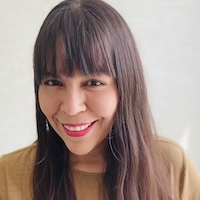
Vázquez received her PhD in Romance Studies from Cornell University. Focused on Central and North America, her research studies the intersections between the Environmental Humanities and the fields of Border and Migration Studies. She is currently working on a book manuscript that thinks through the concept of “border biomes” to examine the complex relationships that exist between border demarcations, ecosystems, the nonhuman dwellers of these regions, and people. Her second book project focuses on the notion of invasive species, through which she addresses questions related to different forms of environmental violence in the context of migration flows in the Americas. Emily grounds these questions in 20th and 21st-Century Central American, Latinx, and Mexican film, literature, and art.
Benjamin D. Weber
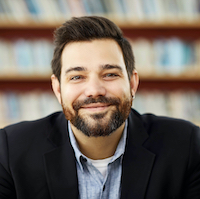
Associate Professor, African-American and African Studies
Weber’s research focuses on policing, prisons, and racial capitalism along with antiracist social movements seeking to broaden the meaning and experience of freedom. Before joining the UC Davis faculty, he taught at Harvard, Brown, and the University of New Orleans where he codirected Louisiana’s contribution to the States of Incarceration national public history project. Benjamin has worked for Alternate ROOTS, an art-activism organization in the South, and for the Vera Institute of Justice on initiatives to end money bail. In New Orleans, he worked with the grassroots reentry nonprofit, BAR NONE, and volunteered for the Welcoming Project, a mentoring program for young people returning home from juvenile jail. He has also taught public high school and coached Urban Debate in East Los Angeles, where he worked on campaigns for greater community control and protections for undocumented students and their families. He is at work on his first book, a history of racism, incarceration, and US empire under contract with The New Press.
Kathleen Whiteley
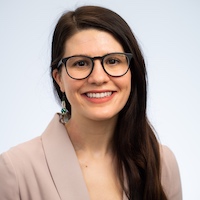
Assistant Professor, Native American Studies
Kathleen Whiteley an assistant professor in the Department of Native American Studies (on leave 2020-2021). She is currently a UC President’s Postdoctoral Fellow at Berkeley. Dr. Whiteley’s dissertation, “The Indians of California versus The United States of America: California Dreaming in the Land of Lost Treaties, 1900-1975,” traces the history of two land claims cases brought by the Native peoples of California against the federal government. She plans to publish a revised version of the dissertation as a monograph, and then to develop a second project that examines the history of the eighteen “lost” unratified treaties made in California between 1851-52. Dr. Whiteley was born and raised in Eureka, California. She is a descendant of the Wiyot Tribe.
2019-2020
Orly Clerge
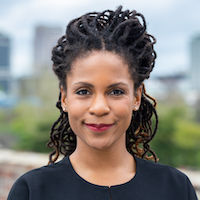
Associate Professor, Department of Sociology
Orly is an author and sociologist whose research focuses on race, migration, cities, inequality, and identity. Orly’s first book The New Noir: Race, Identity & Diaspora in Black Suburbia (University of California Press) is a comprehensive exploration of the making of Black diasporic suburbs. The New Noir examines how nationality and citizenship are negotiated by the Black middle class and is the first book in a two-book series on the politics of Blackness in the 21st century. Orly also co-edited Stories from the Front of the Room: How Higher Education Faculty of Color Survive & Thrive in the Academy (Rowman & Littlefield, 2017) which uncovers the daily encounters underrepresented faculty at historically White college and universities have with racial exclusion and their strategies of resistance. This volume is a collection of letters from dynamic faculty of color across the country who dare to make public their private racialized interactions with other faculty, administrators, students, and staff. For more information, go to: www.orlyclerge.com
Darnel Degand
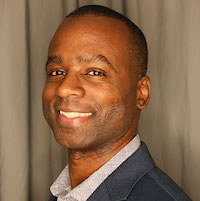
Assistant Professor, School of Education
Darnel Degand studies the various ways media and society influence the development of social success skills by exploring the social processes that exist within media production environments and media consumption experiences. His research also involves the design and development of educational media products and experiences. He received his Ed.D. from Teachers College, Columbia University. Before joining UC Davis, Darnel worked as an interactive media producer for nearly two decades. A sampling of his resume includes positions at Sesame Workshop, multiple online advertising firms, and the City University of New York.
Juan Diego Díaz
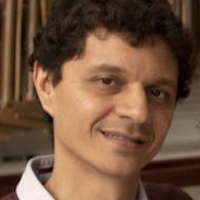
Associate Professor, Department of Music
Juan Diego Díaz is an ethnomusicologist with geographic research interests in Africa and its diaspora, particularly Brazil and West Africa. He explores how African diasporic musics circulate and transform across the Atlantic and how they serve individuals and communities in identity formation. His book Africanness in Action (Oxford University Press, 2021) focuses on how musicians from Bahia, Brazil understand and negotiate essentialist notions about African music and culture. He is also a long-term Capoeira Angola practitioner and has led capoeira, berimbau, and samba ensembles.
Prior to UC Davis, Juan Diego was a lecturer at the University of Ghana and postdoctoral fellow at the University of Essex, the latter funded by the Social Sciences and Humanities Research Council of Canada. The funded research investigates the music of the descendants of freed enslaved Africans who resettled from Brazil to Ghana, Togo, and Benin during the nineteenth century. This research has produced a book titled Tabom Voices: A History of the Ghanaian Afro- Brazilian Community in Their Own Words (2016) and the documentary film Tabom in Bahia (co-directed with Nilton Pereira, 2017), documenting the visit of a Ghanaian master drummer to Bahia, Brazil.
Stacy-Ann Elvy
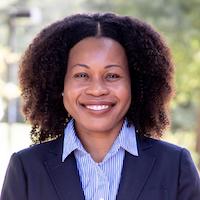
Professor of Law
Stacy-Ann Elvy is a Professor of Law and Martin Luther King, Jr. Hall Research Scholar. Her research focuses on “the commercial law of privacy” and its relationship to emerging technology, and human rights law. Her scholarship has been published in leading legal journals and books, including the Columbia Law Review, Boston College Law Review, Washington & Lee Law Review, and Research Handbook on the Law of Artificial Intelligence. Her articles have also been identified and peer reviewed by distinguished legal scholars in online legal journal Jotwell as some of the best recent works of scholarship relating to commercial law and privacy law. Professor Elvy is currently writing a book, The Internet of Things: The Future of Commercial Law and Privacy (Cambridge University Press), that explores the consumer and legal implications of the Internet of Things.
Stephen Garcia

Professor, Graduate School of Management
Stephen Garcia's research explores the psychology of competition as well as judgment and decision-making. His work has implications for understanding competition and cooperation in business and organizational settings. His research has also been featured in outlets around the world including The Economist, The Wall Street Journal, New York Times, and The Washington Post. Stephen was previously on the faculty at the University of Michigan where he most recently held a joint appointment as Professor of Psychology and Professor of Organizational Studies. Stephen is a graduate of Stanford, Harvard, and Princeton.
Jamal Jones

(Alumni) Assistant Professor, Department of Religious Studies
Jamal Jones received his PhD in South Asian Languages and Civilizations from the University of Chicago. Focusing on premodern India, he examines the intersections between religion, politics, and literature through textual studies. He has two main projects in this area. One is a book manuscript that investigates the social implications of theories of poetry as magic and ritual in medieval south India. The other is a translation of fifteenth-century narratives on the founding of the Nath tradition, an order of yogi ascetics, alchemists, and wonder-workers.
Faheemah Mustafaa
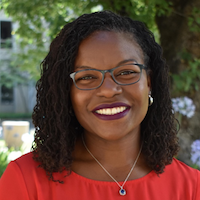
Assistant Professor, School of Education
Faheemah N. Mustafaa's research focuses on K-12 educators’ racial attitudes and practices, and students’ perceptions of their teachers. In particular, she aims to illuminate the diversity of racial attitudes and practices among Black K-12 educators. She is committed to equitable access to education and wellness opportunities for all children. Dr. Mustafaa completed her PhD in Education and Psychology and master’s in Higher Education at the University of Michigan. She is a Ford Foundation fellow and proud first-generation college graduate. Beyond work, she loves the outdoors, the arts, children, and great food and fellowshipping.
Branwen Kiemute Okpako
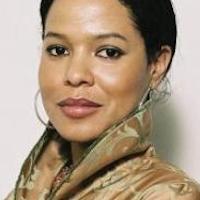
Associate Professor, Department of Cinema and Digital Media
Branwen Okpako was born in Lagos/Nigeria. She received a BSC in political sciences from Bristol University, England in 1991, followed by MFA equivalent in film directing from the German Film & Television Academy, Berlin (dffb) in 1999. Her graduation film Dreckfresser (Dirt For Dinner 2000) won several international awards. For her documentary film The Education of Auma Obama, Okpako received the 2012 African Movie Academy Award for Best Diaspora Documentary, the Festival Founders Award for Best Documentary at the Pan African Film Festival in Los Angeles (both in 2012), and the Viewers Choice Award at the Africa International Film Festival (2011).

